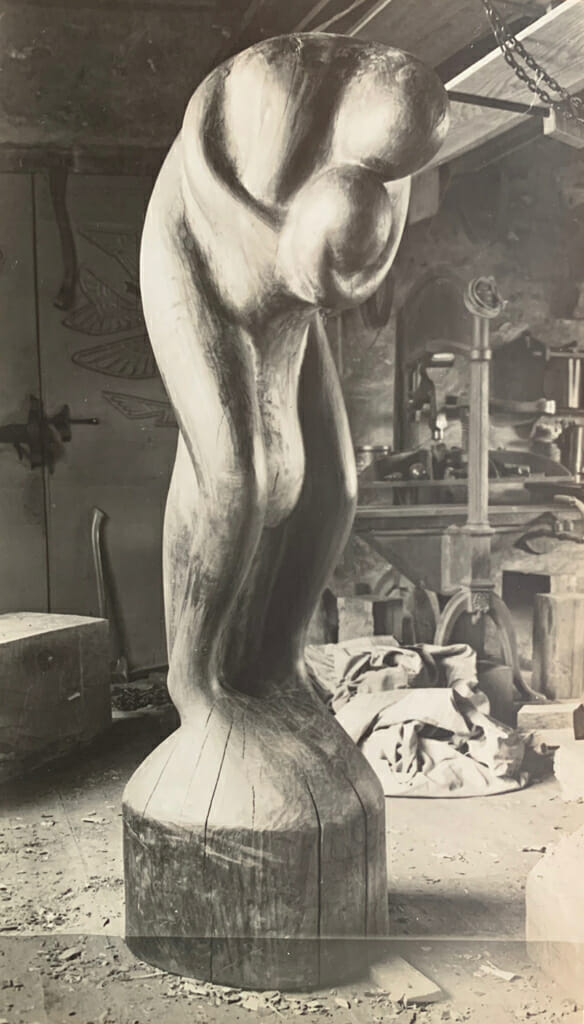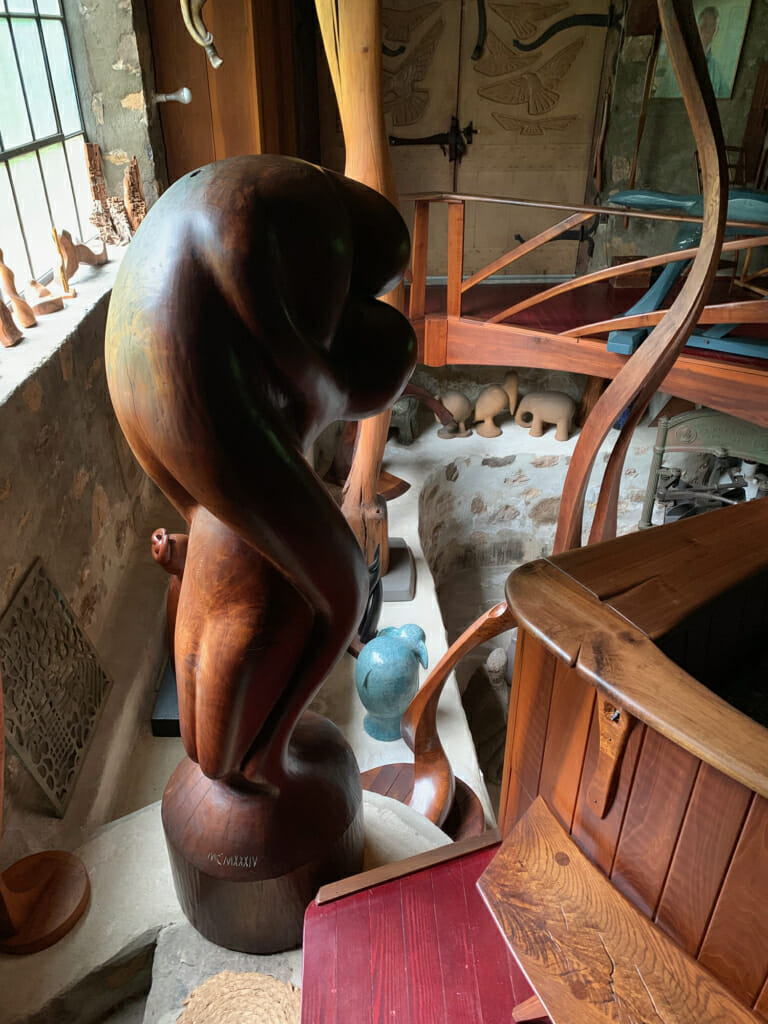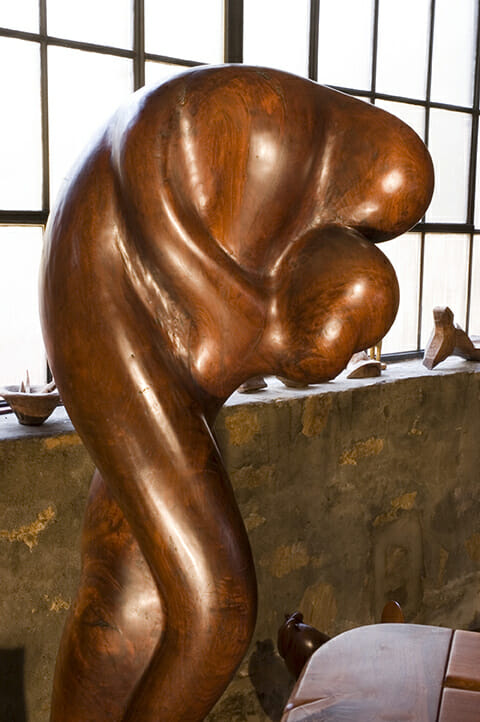Oblivion
Wharton Esherick
1934
Walnut
76.4 x 23.6 inches
Collection of the Wharton Esherick Museum
Image credits: Photo by Marjorie Content, ca. 1934, Wharton Esherick Museum Collection; Photo courtesy Wharton Esherick Museum; Photo by James Mario.
Esherick produced many works, both sculptural and functional, influenced by his deep connection to the Hedgerow Theatre in nearby Rose Valley. Esherick would spend many hours in the balcony of the theater sketching actors onstage, translating the emotions they played into evocative artworks. Oblivion was inspired by the passionate embrace of two actors in the premiere of The Son of Perdition, an adaptation of James Gould Cozzens’ book by the playwright Lynn Riggs (perhaps best known for Green Grow the Lilacs, which was adapted into the musical Oklahoma!). Sized slightly larger than life, this sensuous and fluid sculpture offers a similarly exaggerated rendering of emotion; two intertwined bodies carved from a single log seem to dissolve into one another. This is one of Esherick’s first representational sculptures to move away from a highly geometric construction and toward the organic lines that would characterize the latter half of his career.



